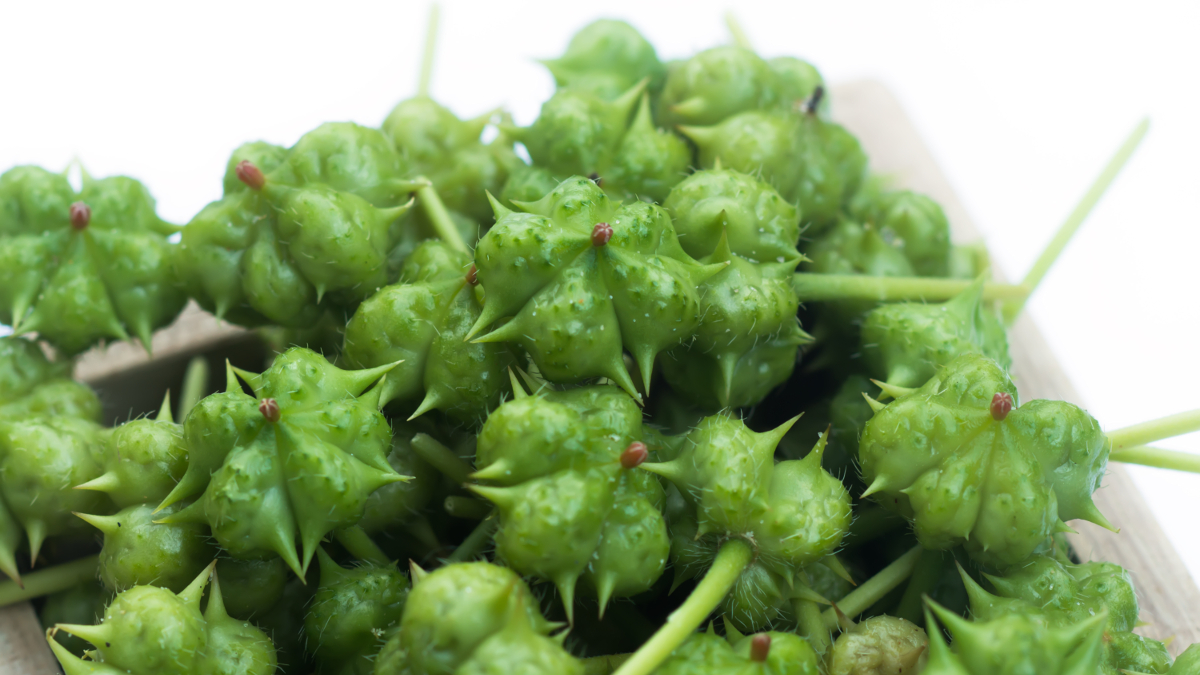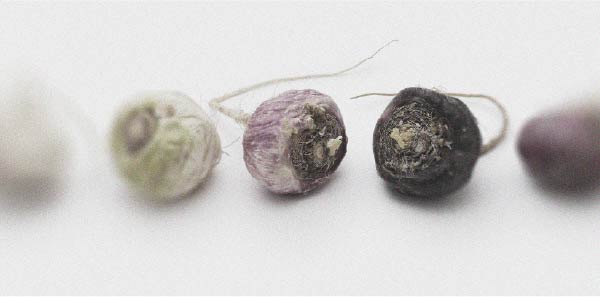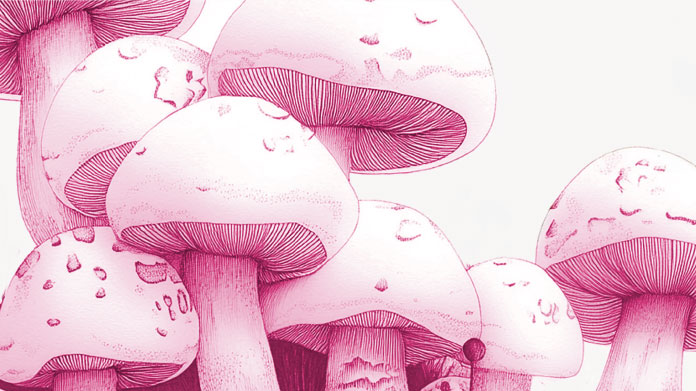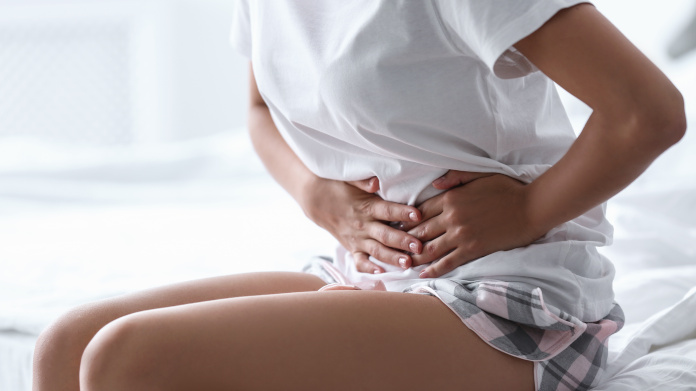Tribulus terrestris: its benefits for your sex life, composition, dosage
Used for thousands of years, Tribulus terrestris is very popular for helping to keep things fun in the bedroom. Spotlight on this unique plant.

Tribulus terrestris, also known as Maltese Cross
Tribulus terrestris is a rampant plant native to the world’s tropical regions but which thrives in dry soil and maritime conditions. It grows to a maximum height of 50cm and produces subtle yellow flowers, often obscured by the long leaves that grow all along its stems (1).
But it is above all the plant’s fruit which has been used for thousands of years in Ayurveda (2) and to which it owes its reputation as an ‘all-purpose plant’. Capable of puncturing a bicycle tyre, the fruit’s distinctive sharp and very tough thorns are in the shape of a Maltese Cross, hence the plant’s alternative name (3).
Composition and active ingredients of tribulus terrestris
Tribulus terrestris has for some years been attracting the interest of medical researchers and phytotherapists, giving rise to numerous studies aimed at pinpointing its active ingredients. Scientists have thus succeeded in identifying some large groups of beneficial molecules in the plant:
- steroidal saponins, including tribulosin and protodioscin, chemically similar to DHEA (4) ;
- beta-sitosterol-D-glucoside, a promising phytosterol (5) ;
- oligosaccharides ;
- and numerous other compounds.
However, these studies have also revealed a wide variation in the contentTribulus terrestris is grown.
The plant’s benefits for sexual function and health
The benefits of Maltese Cross are primarily due to its steroidal saponins particularly tribulosin and protodioscin. These compounds enable Tribulus terrestris to support the health of the:
- sex organs as well as normal hormone activity (6-8) ;
- skin and mouth (9) ;
- immune system (10) ;
- cardiovascular system (11) ;
- nervous system(12).
Tribulus terrestris is thus widely consumed in the form of dietary supplements designed to support sexual function in both men and women. In addition to this sexuality aspect, tribulus is also popular with many sportspeople who use the plant’s benefits to support their performance.
Dosage: how much Tribulus terrestris should you take?
The traditional dosage for Tribulus terrestris in Ayurveda and in all the traditional systems of medicine in which it is used is largely empirical and varies from one region to another (13). This is probably because of the wide disparity in the plant’s steroidal saponin content.
With high-quality extracts standardized to 40% saponins, as is the case for our supplement Tribulus terrestris, the recommended dose is 600mg a day, but you can, of course, ask your therapist for advice on the right dose for your particular needs. We should point out that at the doses generally recommended, Tribulus terrestris has not resulted in any adverse side-effects (14).
Some natural substances to take alongside Tribulus terrestris
Tribulus terrestris can be combined with various natural compounds:
- the plant Avena sativa, which supports urogenital health and helps to revitalise the body;
- catuaba bark, a small, vigorous tree from northern Brazil;
- epimedium, a plant often used in traditional Chinese medicine;
- and extract of Muira puama, a tree with a grey-colored trunk sometimes referred to as ‘Potency Wood’
These various ingredients can be found, amongst others, in synergistic formulations (such as the well-known supplement for men Prosexual Formula Man).
References
- YANALA, Suresh Reddy, SATHYANARAYANA, D., et KANNAN, K. A Recent Phytochemical Review-Fruits of Tribulus terrestris Linn. Journal of Pharmaceutical Sciences and Research, 2016, vol. 8, no 3, p. 132.
- WILLIAMSON, Elizabeth M. Major herbs of Ayurveda. Churchill Livingstone, 2002.
- REGE, Nirmala N., THATTE, Urmila M., et DAHANUKAR, Sharadini A. Adaptogenic properties of six rasayana herbs used in Ayurvedic medicine. Phytotherapy Research: An International Journal Devoted to Pharmacological and Toxicological Evaluation of Natural Product Derivatives, 1999, vol. 13, no 4, p. 275-291.
- YAN, Wang, OHTANI, Kazuhiro, KASAI, Ryoji, et al. Steroidal saponins from fruits of Tribulus terrestris. Phytochemistry, 1996, vol. 42, no 5, p. 1417-1422.
- DEEPAK, M., DIPANKAR, G., PRASHANTH, D., et al. Tribulosin and β-sitosterol-D-glucoside, the anthelmintic principles of Tribulus terrestris. Phytomedicine, 2002, vol. 9, no 8, p. 753-756.
- NASUTION, A. W. Effect of Tribulus terrestris treatment on impotence and libido disorders. Andalas University, School of Medicine, 1993.
- GAUTHAMAN, K., ADAIKAN, P. G., et PRASAD, R. N. V. Aphrodisiac properties of Tribulus Terrestris extract (Protodioscin) in normal and castrated rats. Life sciences, 2002, vol. 71, no 12, p. 1385-1396.
- SANTOS JR, C. A., REIS, L. O., DESTRO-SAADE, R., et al. Tribulus terrestris versus placebo in the treatment of erectile dysfunction: a prospective, randomized, double-blind study. Actas Urológicas Españolas (English Edition), 2014, vol. 38, no 4, p. 244-248.
- KANG, Seok Yong, JUNG, Hyo Won, NAM, Joo Hyun, et al. Effects of the fruit extract of Tribulus terrestris on skin inflammation in mice with oxazolone-induced atopic dermatitis through regulation of calcium channels, Orai-1 and TRPV3, and mast cell activation. Evidence-Based Complementary and Alternative Medicine, 2017, vol. 2017.
- YAZDI, Faramarz Fekri, GHALAMKARI, Gholamreza, TOGHYANI, Majid, et al. Efficiency of Tribulus terrestris L. as an antibiotic growth promoter substitute on performance and immune responses in broiler chicks. Asian Pacific Journal of Tropical Disease, 2014, vol. 4, p. S1014-S1018.
- WANG, B., MA, L., et LIU, T. 406 cases of angina pectoris in coronary heart disease treated with saponin of Tribulus terrestris. Zhong xi yi jie he za zhi= Chinese Journal of Modern Developments in Traditional Medicine, 1990, vol. 10, no 2, p. 85-7, 68.
- AL-ALI, Muneer, WAHBI, Salman, TWAIJ, Husni, et al. Tribulus terrestris: preliminary study of its diuretic and contractile effects and comparison with Zea mays. Journal of Ethnopharmacology, 2003, vol. 85, no 2-3, p. 257-260.
- ZOVKO KONCIC, Marijana et TOMCZYK, Michal. New insights into dietary supplements used in sport: active substances, pharmacological and side effects. Current drug targets, 2013, vol. 14, no 9, p. 1079-1092.
Keywords
4 Days
repeat customer
recommended by my doctor. easy to create an account. Discounts and specials are appreciated. packaging and delivery is dependable. Capsules easy to digest. I've had some some capsules and tablets that are broken inside their bottles.
Kokee
8 Days
Order was shipped on time and packaged…Wonderful Jobs!
Order was shipped on time and packaged excellently.
DMHoge
14 Days
great products and prices
great products and prices
Marie
20 Days
Easy to navigate site
Easy to navigate site, had what I was searching for, good price. easy order-check out
James Tucker
26 Days
My skin is clearing up nicely!
Pretty good for my skin so far.
Christian
29 Days
The new packaging is excellent
The new packaging is excellent - finally! No more squashed boxes and torn envelopes.
GORAN
29 Days
Great Product
Great Product
Larry Garrett
34 Days
Quick shipping
Quick shipping; good price. No issues!
Mary McCarty
35 Days
Thr product is very good and is helping…
Thr product is very good and is helping me on my health. Then is always on time
LUGO Luz
38 Days
Buying was fine
Buying was fine. I had problems with the website not recognizing my login info, and had to call to get it fixed. Other than that, everything was good.
David S. Clark
38 Days
Your super maca and super ginseng are…phenomenal
Your super maca and super ginseng are phenomenal supplements that compliment each other when taking them together. Fantastic feeling of well-being and lots of mid day energy without the crash.
Keith Mason
41 Days
I have had amazing results with every…
I have had amazing results with every supplement I've purchased. I am extremely satisfied with this company
kirstin Torres
41 Days
Fine products
Fine products . They are on the leading edge of online supplements. The only issue -so far-is they sometime run out of subscription items.
Jason Argos
44 Days
The ordering process is very user…
The ordering process is very user friendly and the products always come in a timely manner.
CARTER Rhonda
45 Days
The price for Dr
The price for Dr. Pero's AC-11 is reasonable and in line with his views. (my former colleague). Keep it pure.
CAMPBELL Clayton




